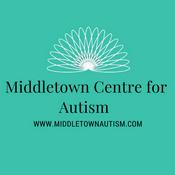Available Episodes
5 of 31
- Sustaining Higher Education in Challenging TimesHow can sustainability stay central in higher education amid financial pressures?In this thought-provoking episode, Dr. Rehema White (University of St Andrews) and Charlotte Bonner (EAUC CEO) challenge the idea that sustainability is a luxury. Instead, they argue it is core to higher education’s mission—equipping graduates to navigate complexity and drive positive change.We explore how sustainability intersects with priorities like quality education, decolonising curricula, and student wellbeing, offering a unifying framework rather than a competing agenda. The conversation also touches on compassionate education, eco-anxiety, and empowering students as change-makers.Our guests share inspiring examples from UK institutions and reflect on the ongoing journey of embedding sustainability in meaningful, context-specific ways. They leave us with hopeful insights about the future of education and its role in shaping a more sustainable world.Tune in for an essential conversation about higher education’s purpose in challenging times.Resources and further reading:Perspectives and Practices of Education for Sustainable Development, Edited By Rehema M. White, Simon Kemp, Elizabeth A. C. Price, James W. S. Longhurst (https://www.routledge.com/Perspectives-and-Practices-of-Education-for-Sustainable-Development-A-Critical-Guide-for-Higher-Education/White-Kemp-Price-Longhurst/p/book/9781032588018)QAA's newly revised and updated 2025 Subject Benchmark Statements (https://www.qaa.ac.uk/the-quality-code/subject-benchmark-statements#april-2025)QAA and Advance HE's Education for Sustainable Development guidance (https://www.qaa.ac.uk/the-quality-code/education-for-sustainable-development)QAA-funded Education for Sustainable Development Collaborative Enhancement Projects (https://www.qaa.ac.uk//en/membership/benefits-of-qaa-membership/collaborative-enhancement-projects/education-for-sustainable-development):ESD and Academic QualityMonitoring and evaluating education for sustainable development in Higher EducationDeveloping Phenomenal Learning: A toolkit for implementing Phenomenon-Based Learning as part of a future-proofed SDG HE curriculumStudents driving curriculum quality for sustainability - developing criteria and tools--------43:19
- Professor Phillip Dawson: Assessment Design for a time of AIIn this podcast, we share Professor Phillip Dawson's keynote address on Assessment Design for a time of AI, which he presented at our 2025 Quality Insights Conference last month. Phillip is co-director of Centre for Research in Assessment and Digital Learning (CRADLE) at Deakin University, Australia. Having initially studied AI and cyber security before his PhD in Higher Education, he’s now a leading expert on assessment validity in the digital age. Artificial intelligence is capable of producing outputs that satisfy the requirements of some high-stakes assessments across a range of disciplines including law, medicine and engineering. This has driven concerns about a new wave of artificial-intelligence-enabled cheating, as well as questions about the sustainability and authenticity of current assessment practices. This presentation explores how assessment needs to change for a time of artificial intelligence. It draws upon work the Phillip has done as one of the leaders of the major Australian project Assessment reform for a time of artificial intelligence, which was funded by the Australian higher education regulator. The presentation’s main focus is resolving the tension between preparing students for a world pervaded by artificial intelligence, and ensuring the integrity and security of assessment.Key points covered are:1. Assessment matters, but so does what is assessed (does it need to change in a time of AI?)2. Validity matters more than cheating (is AI panic more of a threat to validity than AI itself?)3. Future-authentic assessment (prepare for their future, not our past)4. Reverse scaffolding (use AI once you can do it yourself)5. Zone of Proximal Development (tools for production vs tools for learning)6. Cognitive offloading (extraneous vs intrinsic)7. Evaluative judgement (but it can’t be the only thing)8. Make structural not discursive changes (no bogus rules)9. No such thing as AI-proof assessment (beware of anybody who says they have one10. Swiss Cheese programmatic - layers of imperfect assessments tell us more than one good oneIf you would like to view Phillip's slides, go to the video version of this podcast: https://youtu.be/8ANOlnypHFw Don’t forget, if you’re a QAA Member, you can book your place now for our in-person Member Network Conference on 2 April and access a range of thought-provoking and topical presentations and discussions from across the sector just like this one. Click the link to find out more: https://events.qaa.ac.uk/event/abc3576c-0f95-491f-af9d-8ee5cca86eec/summary--------37:21
- Vicki Stott in conversation with Paul GreatrixIn the latest edition of the QAA podcast, our Chief Executive Vicki Stott talks with Paul Greatrix – who last month retired from his position as Registrar at the University of Nottingham at the end of a 36-year career in higher education.Together, Vicki and Paul consider the changes that the sector has gone through over the last few decades and the challenges it faces today, as they anticipate the developments ahead in 2025.Topics include the challenges and opportunities raised by the lifelong learning agenda – and the importance of robust credit transfer mechanisms – the proliferation of artificial intelligence, and the financial pressures currently affecting the sector.Don’t forget, if you’re a QAA Member you can book your place now at our online Quality Insights Conference on 26 and 27 February and access a range of practice presentations from across the sector and thought-provoking discussions just like this one. Click the link to find out more: https://events.qaa.ac.uk/event/df00c374-fa07-40d1-a833-37686a2bda31/summary--------1:04:58
- Terms of engagementOur latest podcast focuses on the challenges and opportunities raised by approaches to student engagement.Hosted by QAA's Dr Matt Denton, this episode considers how strategies for learner engagement might develop to address the needs of a higher education environment which has, in recent years, been radically affected by the impacts of a series of traumatic developments: the Covid-19 crisis, the cost-of-living crisis and the ongoing student mental health crisis.Our podcast considers how educators and providers are responding to the changing ways in which students, often now also facing work, family and carer responsibilities, are engaging with their studies, and asks whether traditional modes of engagement really matter if their academic attainment metrics still look fine.Our host Matt is joined by the University of Manchester's Professor Rebecca Hodgson, the University of Westminster's Tom Lowe, and NUS Vice President for Higher Education Alex Stanley.--------43:29
- Academic integrity and generative artificial intelligenceOur latest QAA podcast marks the International Day of Action for Academic Integrity (IDOA). This global event takes place online on 16 October and will include a panel convened by QAA and chaired by our Chief Executive Vicki Stott. Hosted by QAA's Dr Kerr Castle, this new episode features Loughborough University's Professor Sandie Dann and IDOA co-chair Professor Mary Davis:Sandie is a member of a team from Loughborough which has led a new QAA-funded Collaborative Enhancement Project exploring and promoting good practice, acceptable use, equity and accessibility in student proofreading processes. Mary is Professor of the Student Experience and Academic Integrity Lead at Oxford Brookes University, and successfully led a QAA-funded collaborative project focused on the improvement of student learning by linking inclusion/accessibility and academic integrity.During the conversation, they talk about putting students at the forefront of developing principles and protocols which underpin the integrity of academic practices, as well as the impact of generative artificial intelligence on issues of academic integrity.You can find out more about our work around academic integrity and generative artificial intelligence on the QAA website.--------35:54
More Education podcasts
Trending Education podcasts
About QAA Membership Podcast
The QAA Membership Podcast series hosts discussions on some of the biggest issues facing higher education institutions.
Podcast websiteListen to QAA Membership Podcast, anything goes with emma chamberlain and many other podcasts from around the world with the radio.net app

Get the free radio.net app
- Stations and podcasts to bookmark
- Stream via Wi-Fi or Bluetooth
- Supports Carplay & Android Auto
- Many other app features
Get the free radio.net app
- Stations and podcasts to bookmark
- Stream via Wi-Fi or Bluetooth
- Supports Carplay & Android Auto
- Many other app features


QAA Membership Podcast
Scan code,
download the app,
start listening.
download the app,
start listening.




























